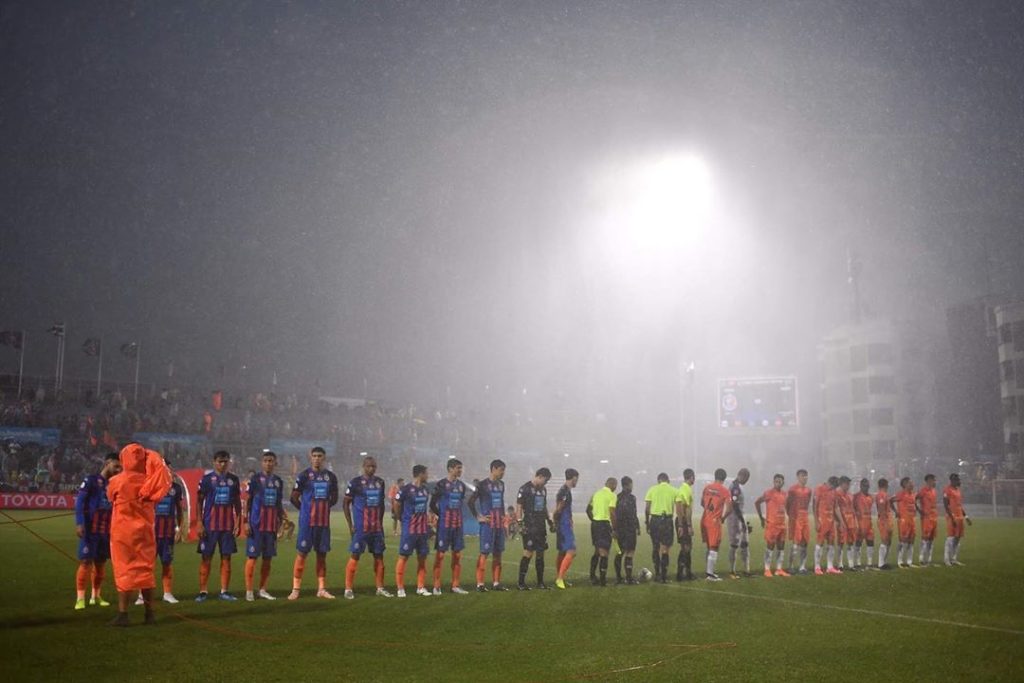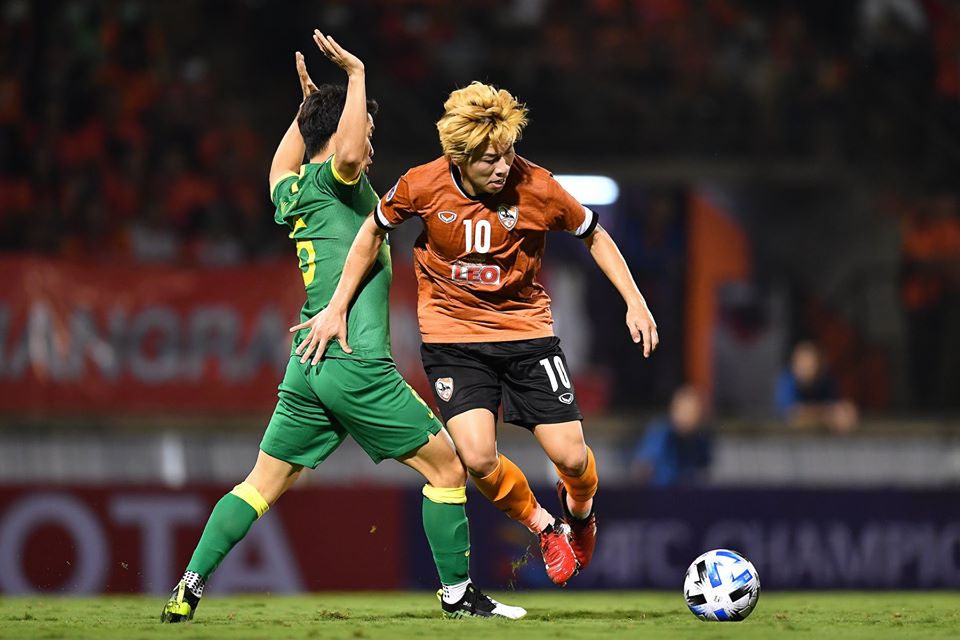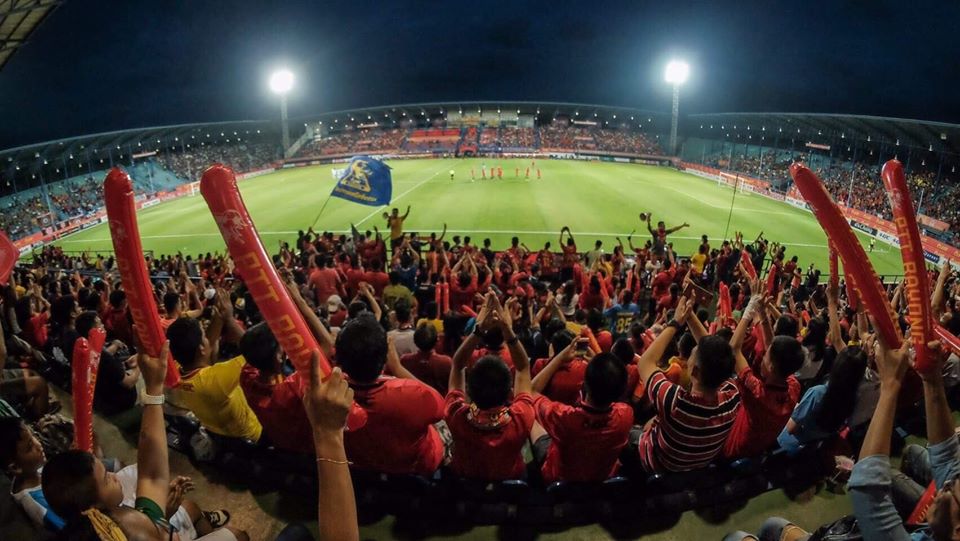
While football leagues across the world struggle with the challenges created by the COVID-19 pandemic, the Thai League (T1) has boldly chosen to change its whole calendar.
Just four matches into the 2020 season, play was halted early in March as Thailand followed the example that had been set in several other Asian countries. With no prospect of the action restarting anytime soon, last week it was proposed that the league adopt the September to May calendar favoured by most European countries.
The proposal has become a plan and the T1 season is set to resume in September on Matchday Five. The change comes with some complications, but it has been met with guarded enthusiasm by several fans and players.
Here are some of the impacts we can expect from a switch in the Thai League calendar.
Drier conditions
The regular February to October schedule takes in all six months of Thailand’s rainy season, which usually kicks off in May and tends to finish with a flourish in October.
Every Thai football fan is familiar with the feeling of slight dread as darkening skies, strengthening winds and the rumble of thunder indicate that a fierce storm is imminent. While the lashing rain may provide respite from the intense heat, it all too often results in waterlogged pitches that reduce matches to a farce.
Games can be suspended when the worst of the storm affects visibility or safety due to the risk of lightning strikes. The efforts of ground staff to clear surface water from the pitch are unsophisticated and often involve using advertising hoardings. When this doesn’t have the desired results, players splash their way through games, and the weather can have an undeniable effect on the outcome.

(Photo: IG/thaileague)
The new calendar will not completely prevent such spectacles, but it should greatly reduce the number of times fans are subjected to tropical storms in uncovered stadiums before having to find their way home on rain-soaked roads.
There will certainly be a soggy start to the season, with September usually the wettest month of the year, while October also sees its share of storms. However, it will be great for the fans to see football played in the drier and cooler months of November to January without the anxiety of an approaching storm messing up their travel plans and messing up the game.
More Euro stars
Recruitment of overseas players will surely become more focused on Europe, with an increased number of players available during the summer months. While it is not unusual to see new arrivals in the mid-season transfer window, Thailand will be a more attractive option if contracts last from September to May.
T1 may traditionally favour Brazilians as the foreign contingent, but many Spaniards and Eastern Europeans have been very successful, while players from France have become increasingly influential.
A greater diversity of nationalities should generate wider interest in Thai football, which may result in more opportunities further down the line.
Champions League pros and cons
With most East Asian countries on a similar calendar to Thailand, most clubs are at a similar stage in their pre-season preparations when the AFC Champions League (ACL) qualifiers come around in January and February.
Thai clubs do not fare well in these qualifiers, with Buriram United the only team to have reached the group stage from a playoff and that was back in 2013. If Thai clubs are midway through the season while their opponents are still shaking off the rust, chances of success are surely higher.
Group stage performances may also be enhanced by having more settled sides and greater momentum than their rivals between February and April.

(Photo: Facebook/AFC Champions League)
On the flip side, clubs competing in the ACL group stage may find the fixture pileup and travel an unwelcome distraction if they are still in contention for domestic prizes. Participation in the ACL requires some grueling cross-continental journeys which might not be appreciated at the business end of the season.
Contract chaos
Like other countries, there is a mess of contractual details to untangle, with many players having signed up for 2020 only. Clubs, agents and players will have to work together to ensure that teams are ready to go again in September and that there are contract extensions that move into 2021.
Inevitably, some clubs will lose players who were supposed to be on board for the duration of this year, while FIFA will be asked to give special permission to allow new signings to be made outside the specified transfer window dates.
Clubs have apparently agreed to reduce salaries by 50 per cent to help compensate for lost income through sponsorship, TV money, ticket sales and merchandising. This will hit players hard and those in more precarious financial positions may be lost to the game altogether if they are unable to deal with such a significant drop in earnings.
More disappearing clubs
While other countries cling to the hope of resuming their seasons in June or July, Thailand has done away with the speculation and taken a more pragmatic view, providing clubs with a more certain target instead of the maybes that exist elsewhere.
However, this also means that by the time of the restart, there will have been a six-month layoff, which means six months without significant income.
It is not exactly rare to see clubs in Thailand go out of business for various reasons, so it seems unlikely that all will make it through the current crisis. Several T1 clubs have folded in the last decade, most recently PTT Rayong just last year.

(Photo: Facebook/Thai League)
Some clubs will not be able to afford the luxury of a 50 per cent wage cut and will likely be forced to release players from their contracts temporarily at least.
There have been no indications yet that specific clubs are under threat of going bust, but we are less than two months into the suspension. It is unlikely to be enough for some clubs to simply cut salaries or make staff and players redundant.
It will be a surprise if the number of clubs competing in February is the same as the number that resumes business in September. This may not be limited to Thailand, but a six-month gap between matches surely makes it more vulnerable, especially given that many clubs do not have the financial resources of leagues in bigger countries.
There may be some financial support available to clubs in need, but this has yet to be agreed and is likely to be limited in scale.
In the long-term, the switch to a September-May calendar may well be beneficial, with the more suitable weather conditions a definite bonus. However, there are tough days ahead as clubs try to stay afloat between now and September, while the players try to get by on reduced salaries if they are lucky enough to have a salary at all.
Main Photo: Facebook/Thai League




